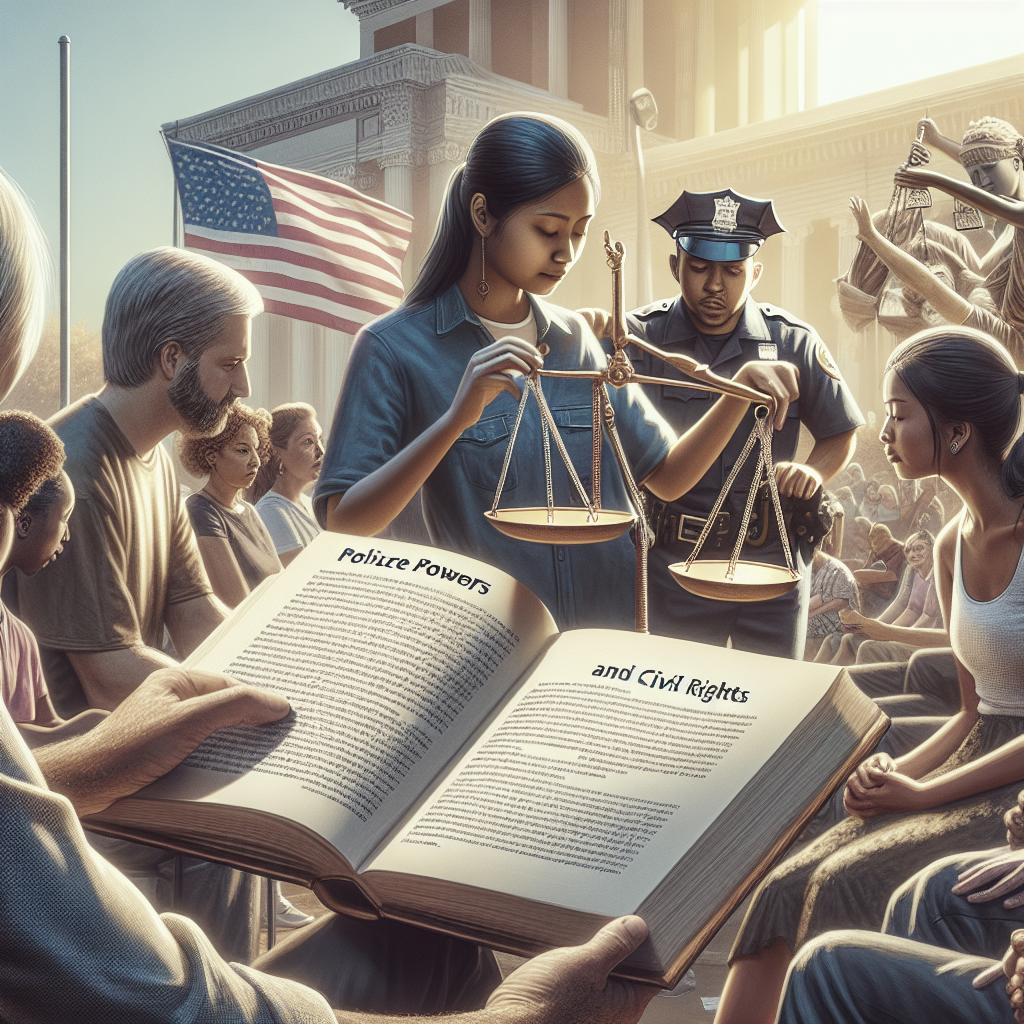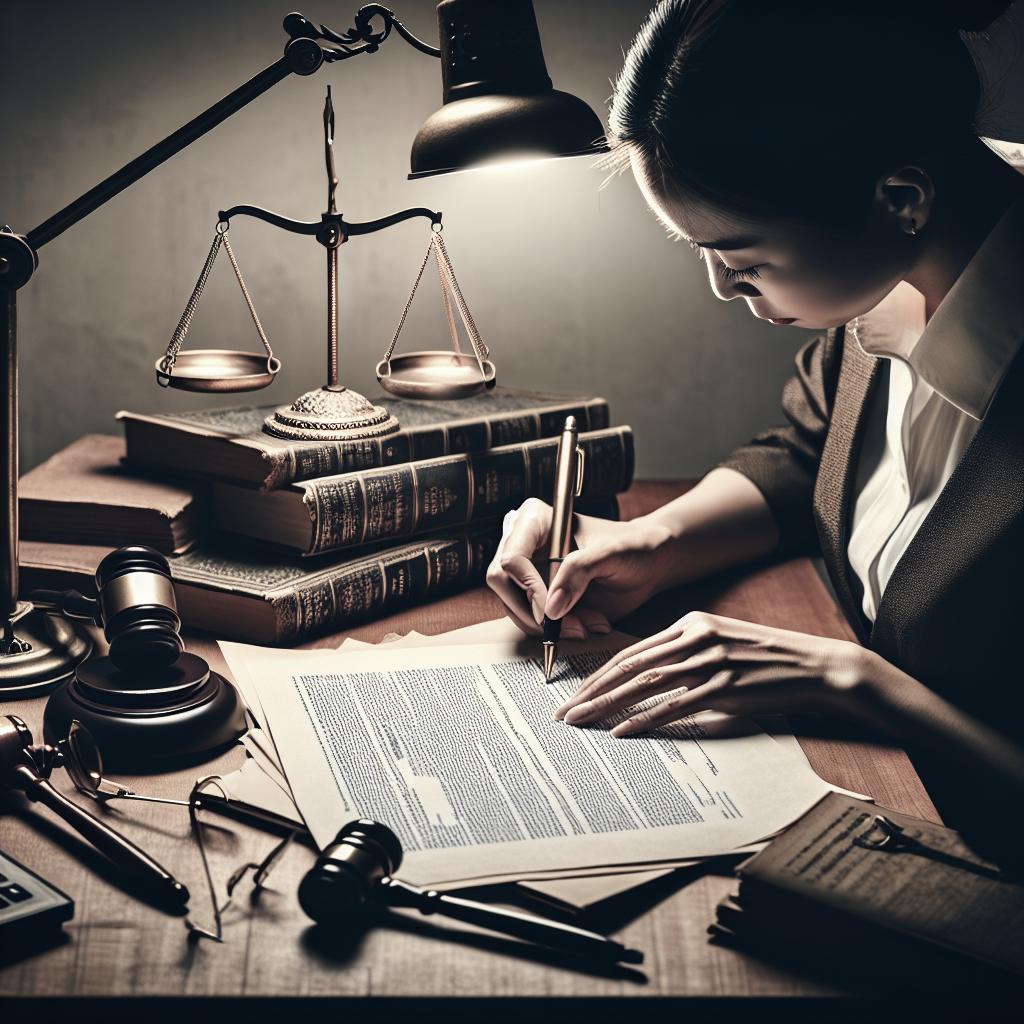“`html
Understanding Police Powers and Civil Rights
Police powers and civil rights are central to the balance of authority and personal liberty within societal frameworks. This blog post delves into the intricate dynamics between law enforcement duties and the protections afforded to individuals. It aims to shed light on how these elements coexist, often amidst tension and debate, leading to an ongoing dialogue about societal safety, individual freedoms, and justice. Explore with us as we break down the nuances of police authority, the legal boundaries that guide their actions, and the pivotal role civil rights play in safeguarding personal freedoms.
The Foundation of Police Powers
Police powers are derived from the laws enacted by legislative bodies that empower officers to maintain public order, prevent crime, and enforce laws. These powers grant law enforcement the authority to perform duties that include arresting suspects, conducting searches, and carrying out surveillance. Underlining these capabilities is the legal doctrine that seeks to protect the welfare of citizens while ensuring public safety.
However, the application of police powers is not limitless. It is bound by procedural laws that demand reasonable suspicion, probable cause, and, in many instances, judicial oversight. With the rise of digital surveillance tools and advanced policing techniques, the scope and implementation of these powers have significantly evolved, demanding continuous scrutiny and legal adaptation to uphold the balance between security and liberty.
Civil Rights: The Guardians of Freedom
Civil rights, enshrined in constitutional tenets, serve as protective measures against arbitrary state actions, ensuring citizens enjoy fundamental freedoms. These rights encompass freedom from discrimination, the right to privacy, freedom of expression, and the right to legal counsel. They form the bedrock of democratic societies, where individual rights are cherished and protected against unlawful infringements.
The essence of civil rights lies in their universal applicability and their role as checks and balances within the legal system. As law enforcement operates within its mandate, civil rights serve as a reminder and protector of personal autonomy, urging respect for both the letter and spirit of the law. This dynamic interplay between enforcing laws and respecting rights often remains a contentious field, necessitating an informed populace and transparent policing practices.
Legal Framework Guiding Police Conduct
The legal framework governing police conduct is comprehensive, encompassing constitutional provisions, statutory laws, judicial interpretations, and internal department policies. Central to this framework are the constitutional amendments that safeguard individual rights against governmental overreach, such as the Fourth Amendment in the United States, which protects against unreasonable searches and seizures.
This framework extends to regulations that require accountability and transparency in policing practices. Post-incident investigations, body camera mandates, and civilian review boards are part of the mechanisms that aim to ensure police powers are not misused. These components work synergistically to foster law enforcement practices that are fair, just, and within the legal boundaries established by society.
Challenges in Balancing Powers and Rights
Balancing police powers with civil rights presents ongoing challenges, particularly in diverse societies where the nexus of law enforcement and community relationships can be strained. Issues such as racial profiling, excessive force, and surveillance controversies highlight the difficulty in maintaining equilibrium between effective policing and respect for civil liberties.
Technological advancements further complicate this balance, as tools like facial recognition and data analytics introduce new dimensions of privacy concerns. Addressing these challenges requires robust legal protections, community engagement, and adaptive policing strategies that prioritize human dignity while securing public spaces.
Enhancing Accountability and Transparency
Building public trust in law enforcement necessitates accountability and transparency. Implementing practices such as body-worn cameras, which offer objective records of police interactions, helps bridge the gap between police operations and public perception. Transparency in police procedures and decision-making processes fosters a culture of openness that can enhance community relations and trust.
Moreover, accountability mechanisms, including independent oversight bodies and community feedback systems, play crucial roles in monitoring, evaluating, and guiding police conduct. These systems ensure that officers are held to high standards of professionalism and integrity, crucial for maintaining the legitimacy of law enforcement agencies.
Future Prospects in Police Powers and Civil Rights
The future of police powers and civil rights hinges on continuous legal, societal, and technological evolution. As new challenges and opportunities arise, adaptive legal frameworks and informed public discourse will be paramount in shaping policies that protect communities while respecting individual rights. Ongoing education and awareness initiatives will empower citizens and law enforcement alike to navigate this complex landscape with understanding and respect.
Collaboration between government, civil society, and technology sectors can yield innovative solutions that uphold both security and privacy. By fostering an environment of mutual trust and awareness, societies can aim for a harmonious balance that advances collective safety and personal freedoms.
| Section | Key Points |
|---|---|
| The Foundation of Police Powers | Origins of police authority, legal constraints, evolving scope with technology |
| Civil Rights: The Guardians of Freedom | Constitutional protections, universality of rights, balance with law enforcement |
| Legal Framework Guiding Police Conduct | Constitutional amendments, statutory and judicial guidelines, accountability |
| Challenges in Balancing Powers and Rights | Community tensions, technology-driven privacy issues, adaptive responses needed |
| Enhancing Accountability and Transparency | Body cameras, oversight bodies, fostering public trust and engagement |
| Future Prospects in Police Powers and Civil Rights | Legal and societal evolution, cross-sector collaboration, fostering trust |
“`


